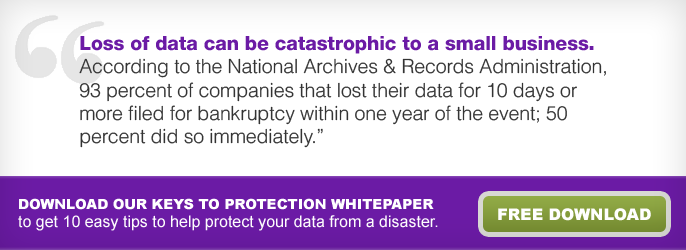
Sometimes you try using a cloud service and realize it isn’t a good fit for your business. But you shouldn’t have to learn that at the worst possible moment. Here are three key questions a small business can ask when evaluating a new cloud service.
- How much technical support and customer service will I need?Support standards and expectations vary by industry and service platform, and your needs will vary depending on your comfort with that platform. Some cloud services offer support via phone and chat, while others only offer support via email. Some services have staff standing by 24/7, while others have limited hours. Some charge a premium for support or offer it only during the first year of your service contract. The key is making sure the type, cost and availability of the support offered matches your business needs.
- How will I know my data (and my clients’ data) is secure?It’s a good idea to discuss your security needs and expectations with any prospective cloud vendor. A cloud services provider should be able to provide you with a white paper outlining its security practices. Before storing your data with a provider, feel free to ask detailed questions about their data centers, such as location, physical security measures and backup generators.
- Will this cloud service scale alongside my business needs?Your cloud service should be able to grow with your business and integrate with other scalable platforms your business uses. But it should also be able to scale down when appropriate. For example, if your business had to downsize by 50 percent last year, you may be paying for 10 extra software licenses you don’t need. Doing some homework up front can help you avoid getting hit with an early termination fee.
By taking the time to ask these three questions, a small business can make better decisions when choosing a new cloud service.
As always, we want to hear your feedback. Which of these questions have you found to be the most critical? What other questions would you recommend asking?

